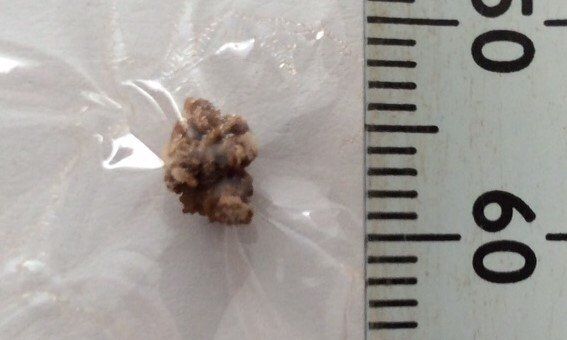
Kidney Stone Image
Renal and ureteric stones: assessment and management
This NICE Guideline is available for all at https://www.nice.org.uk/guidance/ng118
Helpful Information For Employer and HR Executives
A kidney stone moves from the kidney, down a ureter, through the bladder, down the urethra and out.
The stone moves in and by the flow of urine.
The ureters and urethra are fibrous muscular tubes that have a rolling squeezing motion that moves urine down those tubes.
Most stones have sharp edges and are pointy.
The edges and points catch against and into the sides of a ureter and the urethra.
When the stone is caught up in one of these tubes your employee experiences a blocked urine flow and feels the need to frequently visit the loo.
Imagine the stone ripping itself free in the urine flow and then being caught again after travelling less than a millimetre down a tube.
Your employee is now experiencing severe pain. The bodies mechanism for severe pain is to pass out. (A heart attack has the same effect)
Now your employee has internal bleeding which is being washed in urine!
Very often your employee will go for hours and days without a stone movement because it is firmly wedged.
Then your employee will move, it can be a different movement or quite normal like standing or reaching and wham they have passed out; in the work place, or when driving or at home.
The treatment is to drink plenty of water and that means having a loo close by. Analgesics to kill the pain are available but no one should be taking them all the time in case of addiction or becoming immune. Antibiotics are also taken but immunity again could become a problem.
Sometimes it takes weeks and months for sufferers to completely pass a kidney stone.
Your employee will probably get very painful kidney infections and/or bladder infections and may go on to have even more stones and risk kidney damage or kidney loss with each stone?
Please remember your employee will have no visible symptoms just an understandable reluctance to move and never be far from a loo.
Helpful Comments from Sufferers
The consequences of drinking around 2.5 litres of water each day are:
Urinating up to 10 times in every 24 hours can impact on relationships, on work, on social life, and can lead to anxiety and depression. The need for frequent toilet trips and avoiding distressing accidents make day to day living extremely challenging.
1 Develop a habit that suits you and your life style to achieve drinking the amount of water that has been recommended to you.
2 You may be more successful if someone else is supporting you by drinking water at the same time.
3 Think of drinking water as taking your medicine.
On how to Manage water drinking and working:
1 The ideal way to maintain water drinking targets and to meet your working responsibilities is to work from home.
2 If you have to attend your work place but your journey time is extended due to traffic congestion ask to vary your start and leaving times so that you have quicker access to a loo.
Sufferers have found that when they show friends and work colleagues a stone they have passed, those friends and colleagues begin to understand what all sufferers have to experience.
By this simple act you are raising awareness for yourself and many thousands of other sufferers.
To help keep your stone intact and from getting lost we suggest fixing your stone to a piece of card with see through sticky tape and adding the date of when you first experienced the pain and the date you passed the stone to the card.
A new NICE Guideline to the NHS has been published which will be of interested to kidney stone sufferers who have had a number of associated employment absences and to HR employees called, Workplace health: long-term sickness and absence and capability to work (ng 146) published in November 2019. The link to this Guidance is https://www.nice.org.uk/guidance/ng146
Kidney Cancer Support Network are the UK’s largest and most active patient-led kidney cancer charity. Whether you are a patient, survivor or if someone you know has been diagnosed with kidney cancer, www.kcsn.org.uk is the right place to find support and information, and to be part of a caring and knowledgeable community of people.
